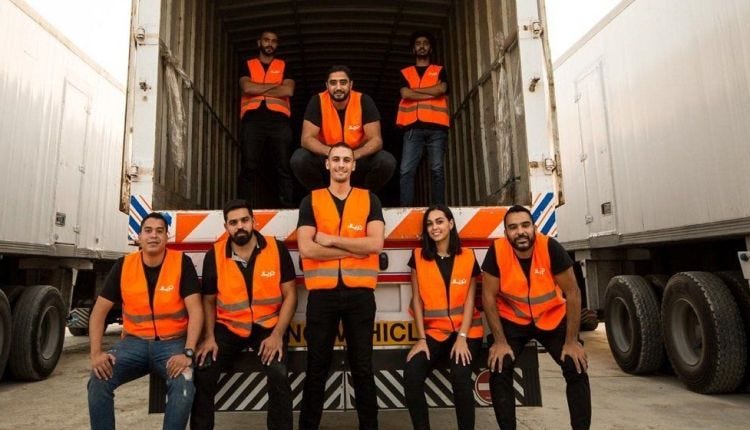The Pakistan startup scene was dealt another blow recently as it was announced that Egyptian-based startup, Trella, would be stopping new orders in the country due to the current macroeconomic turmoil. This news comes less than a year after Dubai-based Swvl Holdings, VavaCars, and Uber-affiliated Careem all suspended services, causing a funding crunch and valuation pressures for global tech companies in Pakistan.
Trella, which raised a whopping $42 million from investors including AP Moller-Maersk’s investment arm in 2021, did not respond to media inquiries. However, sources close to the company cited Pakistan’s credit rating downgrades, restrictions on imports due to a dollar shortage, and the country’s currency losing over a third of its value as reasons for its precarious business in Pakistan. All of these factors have impacted the trucking business, making it challenging to operate in the country.
Despite the Pakistan setback, Trella plans to retain some employees to help carry out its business in Egypt, the UAE, and Saudi Arabia. The start-up entered Pakistan in 2020, and the move was seen as a strategic one given Pakistan’s growing logistics market. However, the current economic climate has made it difficult for foreign companies to survive in the country.
The closure of Trella’s Pakistan operations is a significant setback for the country’s start-up economy, which is already struggling to attract investment. Start-ups in Pakistan face a funding crunch, and with the recent suspension of several well-known tech companies, the outlook is uncertain. Airlift, which raised a record $85 million in funding, also closed its operations last year.
Trella’s exit from Pakistan marks the latest chapter in the country’s tumultuous start-up story. The closure of several high-profile companies has left the industry in disarray, and it remains to be seen whether any new players will enter the market. Despite the challenges, however, entrepreneurs in Pakistan remain optimistic about the future and are hopeful that the country’s start-up scene will eventually flourish.

That said, here are some lessons to be gleaned from Trella’s closure of operations in Pakistan:
- The importance of considering macroeconomic factors: Trella’s exit from Pakistan highlights the importance of considering macroeconomic factors before investing in any country. While Pakistan’s logistics market showed promise, the country’s economic challenges made it difficult for foreign companies to operate.
- The impact of currency fluctuations on businesses: Trella’s exit also highlights the impact of currency fluctuations on businesses. Pakistan’s currency lost over a third of its value, which made it difficult for companies that operate in the country.
- The importance of diversification: Trella’s decision to retain some employees to help carry out its business in Egypt, the UAE, and Saudi Arabia shows the importance of diversification. By diversifying its operations across multiple countries, Trella can reduce its dependence on any single market and mitigate risks associated with macroeconomic factors.
- The challenges facing startups in emerging markets: The closure of several high-profile start-ups in Pakistan highlights the challenges facing start-ups in emerging markets. These challenges include a funding crunch, valuation pressures for global technology companies, and economic instability.
- The need for long-term planning: Trella’s exit from Pakistan also underscores the importance of long-term planning. Startups that enter emerging markets must have a long-term plan in place to weather economic downturns and market fluctuations.
Overall, the story of Trella’s closure of operations in Pakistan highlights the importance of carefully considering macroeconomic factors, diversifying operations, and having a long-term plan in place when entering emerging markets. It also underscores the challenges facing start-ups in emerging markets and the need to be prepared for economic instability and market fluctuations.
Trella Pakistan
Charles Rapulu Udoh

Charles Rapulu Udoh is a Lagos-based lawyer, who has several years of experience working in Africa’s burgeoning tech startup industry. He has closed multi-million dollar deals bordering on venture capital, private equity, intellectual property (trademark, patent or design, etc.), mergers and acquisitions, in countries such as in the Delaware, New York, UK, Singapore, British Virgin Islands, South Africa, Nigeria etc. He’s also a corporate governance and cross-border data privacy and tax expert.
As an award-winning writer and researcher, he is passionate about telling the African startup story, and is one of the continent’s pioneers in this regard
